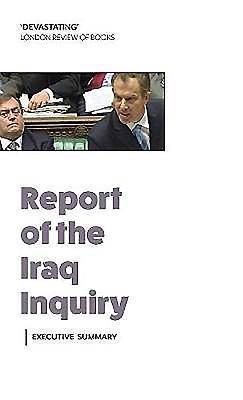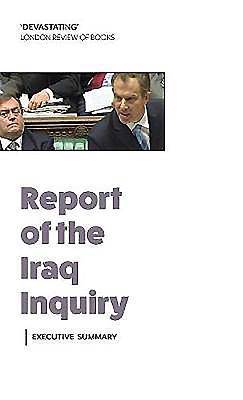
- Retrait gratuit dans votre magasin Club
- 7.000.000 titres dans notre catalogue
- Payer en toute sécurité
- Toujours un magasin près de chez vous
- Retrait gratuit dans votre magasin Club
- 7.000.0000 titres dans notre catalogue
- Payer en toute sécurité
- Toujours un magasin près de chez vous
The Report of the Iraq Inquiry
Chilcot Report - Executive Summary
Sir John Chilcot, Sir Lawrence Freedman, Baroness Usha Kumari Prashar, Sir Roderic Lyne, Sir Martin Gilbert, Iraq Inquiry
Livre relié
27,95 €
+ 55 points
Description
The key findings of the public inquiry into Britain's handling of the 2003 Iraq war, subject of the new film Official Secrets. Chaired by Sir John Chilcot, the Iraq Inquiry tackled the threat to Britain; the legal advice for the invasion; intelligence about weapons of mass destruction; and planning for a post-conflict Iraq. This 60,000-word executive summary was published in July 2016.
Spécifications
Parties prenantes
- Auteur(s) :
- Editeur:
Contenu
- Nombre de pages :
- 182
Caractéristiques
- EAN:
- 9781912454044
- Date de parution :
- 01-12-17
- Format:
- Livre relié
- Dimensions :
- 135 mm x 216 mm
- Poids :
- 373 g

Les avis
Nous publions uniquement les avis qui respectent les conditions requises. Consultez nos conditions pour les avis.






